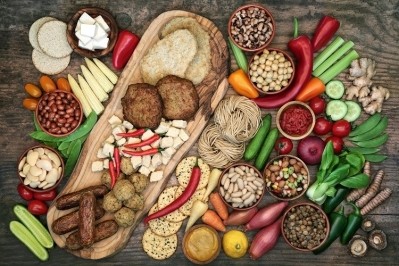In today's diligent consumer landscape, the need for ethically sourced and lasting products has surged. Private label food manufacturers have become innovators in this domain name, frequently collaborating with agreement food manufacturers to spearhead sustainability and also responsible sourcing efforts. With a tenacious dedication to ecological values, personal label brands have made it their mission to provide lasting, high-grade alternatives to consumers.
Private Label Food Manufacturers
Over the last few years, private label food manufacturers, additionally known as own brands or shop brands, have actually observed an amazing surge in popularity. These producers produce goods sold under the logo design of a store, grocer, or exclusive entity. What collections private-label products apart is their capacity to provide competitive pricing without compromising on high quality.
Agreement Food Manufacturers
Many private-label food producers sign up with pressures with contract producers to develop their line of product. Agreement food producers are specialists in producing food for private tags. This critical partnership enables exclusive label companies to use the proficiency, sources, and specialized food production centers of their collaborators.
Sustainability at the Core
Private label food manufacturers employ different strategies to improve sustainability within their supply networks:
Moral Sourcing:
Exclusive label firms are progressively committed to sourcing components according to ethical and also reasonable trade criteria. This requires ensuring that producers and also employees of raw materials, such as coffee beans, seasonings, or cocoa, obtain fair compensation for their efforts.
Neighborhood Sourcing:
Focusing on local sourcing of components is another trademark of private-label food manufacturers. This not just decreases the carbon footprint connected with transport however likewise supports local farmers as well as areas.

Organic Contents:
With the organic food market on the rise, exclusive labels are reacting by integrating organic active ingredients into their product lines. Organic farming techniques focus on dirt health while avoiding artificial chemicals and plant foods.
Lasting Seafood:
Private Label Food Manufacturers are attentive in making sure that the fish and shellfish they use is sustainably collected, sticking to guidelines established by companies like the Marine Stewardship Council, which advertises responsible fishing.
Decreased Food Waste:
Personal label companies are proactively dealing with reducing food waste by carrying out efficient manufacturing processes as well as creating products with longer shelf lives. Some brand names are additionally partnering with food rescue organizations to contribute surplus food to those in need.
Eco-Friendly Packaging and also Initiatives
Sustainability initiatives by private-label food producers expand beyond sourcing active ingredients to include product packaging and environment-friendly campaigns:
Sustainable Packaging:
Private label brands have actually embraced green packaging choices, including recyclable, eco-friendly, or compostable materials. Revamping packaging to reduce excess product and reduce ecological influence is a top priority.
Waste Decrease:
To lessen wastage, private-label food suppliers maximize product sizes, minimize excess packaging, and also check out cutting-edge packaging options. Some brands also encourage clients to take part in recycling programs.
Energy Performance:
Several exclusive label makers are buying even more energy-efficient production plants, decreasing water usage, and taking on renewable energy resources to additionally reduce their environmental impact.
Carbon Neutral Initiatives:
Some personal brand name food producers are taking enthusiastic actions to achieve carbon neutrality by countering their greenhouse gas emissions with reforestation projects and also renewable energy credit ratings.
Obstacles and the Road Ahead
Despite the significant strides made in sustainability and accountable sourcing, private-label food suppliers face obstacles. Balancing sustainability with cost-effectiveness can be a fragile act, sometimes needing compromises on lasting active ingredients or the exploration of eco-friendly choices.

Regularly Asked Concerns
Q1: What are private label food manufacturers?
Private label food manufacturers create items offered under the logo design of a retail store, grocer, or personal https://wholesalefoodgroup.com.au/private-label-food-manufacturers/ entity. They offer competitively priced items without compromising on quality.
Q2: Exactly how do private label food manufacturers promote sustainability?
Private label food manufacturers promote sustainability with honest sourcing, neighborhood component procurement, using natural ingredients, lasting seafood methods, as well as initiatives to lower food waste.
Q3: What green packaging options do private label brand names use?
Personal label brands adopt green product packaging options such as recyclable, eco-friendly, or compostable materials. They also upgrade packaging to minimize excess material as well as reduce ecological influence.
Q4: What challenges do private label food manufacturers face in sustainability initiatives?
Stabilizing sustainability with cost-effectiveness is a significant challenge for private label food manufacturers. This might call for concessions on lasting active ingredients or the expedition of environment-friendly options.
Final thought
Private label food manufacturers are at the forefront of the sustainability and also responsible sourcing activity within the food sector. Their commitment to moral sourcing, local purchase, organic active ingredients, as well as lasting techniques, along with their dedication to environmentally friendly product packaging and waste reduction campaigns, demonstrate their determination to meet the demands these days's eco-conscious consumers.
In spite of the obstacles they face, private label food manufacturers are positioned for an appealing future. With customers significantly focusing on sustainability, the market is most likely to witness also better collaboration with suppliers, financial investment in lasting technologies, and also a dedication to openness. As we move on, private label food manufacturers will remain to play a vital role in shaping a more lasting and also ethical food landscape for all.